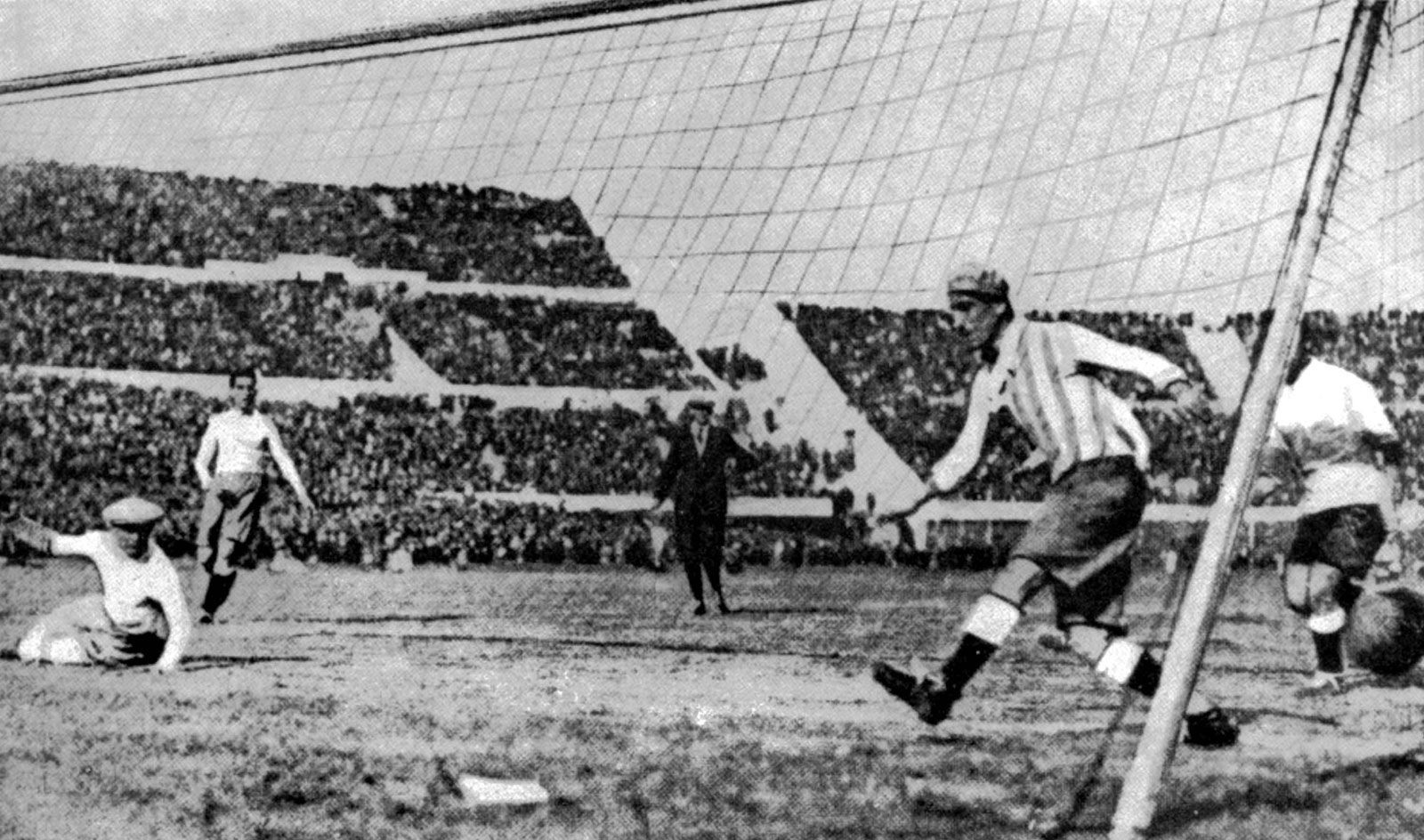Are you curious about how frequently the FIFA World Cup takes place? This article dives deep into the World Cup schedule, its history, and what makes it such a globally anticipated event. Find all the answers you’re looking for right here, brought to you by CAUHOI2025.UK.COM. We’ll also touch on the cultural and economic impact of this quadrennial tournament and how you can stay updated on future events.
1. The FIFA World Cup: A Quadrennial Celebration of Football
The FIFA World Cup, the most prestigious association football tournament, is held every four years. This highly anticipated event brings together national teams from around the globe to compete for the coveted title of world champion.
The World Cup’s consistent four-year cycle has made it a cornerstone of the sporting world, allowing nations to build and refine their teams, and fans to eagerly anticipate the next chapter in football history. The consistent scheduling also allows for extensive qualifying rounds, ensuring that the best teams from every continent have the opportunity to compete on the world stage.
1.1. Why Every Four Years?
The decision to hold the World Cup every four years was influenced by several factors, including:
- Olympic Cycle: The early FIFA tournaments were inspired by the Olympic Games. Keeping the four-year cycle allowed FIFA to distinguish the World Cup.
- Player Development: Four years provides sufficient time for players to develop their skills, for new talents to emerge, and for teams to build cohesion.
- Qualifying Tournaments: A significant amount of time is needed for qualifying tournaments to take place across all FIFA confederations. This ensures fair representation and allows every nation a chance to compete.
- Hosting Logistics: Hosting the World Cup is a massive undertaking, requiring extensive infrastructure development, security planning, and logistical coordination. A four-year gap provides host nations with ample time to prepare.
- Economic Impact: The World Cup brings substantial economic benefits to the host nation, including increased tourism, job creation, and infrastructure improvements. Spreading these benefits out every four years makes the impact more manageable and sustainable.
1.2. The History of the World Cup
The first World Cup was held in 1930 in Uruguay. The tournament was the brainchild of Jules Rimet, the then-president of FIFA, who sought to create a global football competition that would unite nations through sport.
- Inaugural Tournament: Uruguay won the inaugural tournament, defeating Argentina in the final.
- Interruption: The tournament was interrupted by World War II, with no World Cups held in 1942 or 1946.
- Post-War Revival: The World Cup resumed in 1950 and has been held every four years since, solidifying its place as the premier international football competition.
 Uruguay scoring its first goal in the World Cup final against Argentina, in Montevideo, Uruguay, July 30, 1930.
Uruguay scoring its first goal in the World Cup final against Argentina, in Montevideo, Uruguay, July 30, 1930.
1.3. Key Moments and Milestones
Over the decades, the World Cup has delivered countless memorable moments and milestones:
- Pelé’s Emergence (1958): The emergence of the legendary Pelé in the 1958 World Cup, where he led Brazil to victory at just 17 years old, marked the beginning of a new era in football.
- England’s Victory (1966): England’s triumph on home soil in 1966 remains one of the most iconic moments in English football history.
- Maradona’s Hand of God (1986): Diego Maradona’s controversial “Hand of God” goal in the 1986 quarter-final against England is one of the most talked-about incidents in World Cup history.
- Germany’s Dominance: Germany has consistently been a strong contender. According to research by the German Football Association (DFB) in 2023, their success is because of a strong youth development program and strategic long-term planning.
- Women’s Increasing Role: The increasing role of women in soccer and the growing popularity of the FIFA Women’s World Cup.
1.4. Format and Qualification
The World Cup format has evolved over the years, but the core structure remains consistent:
- Qualifying Rounds: National teams from around the world compete in regional qualifying tournaments to secure a spot in the final tournament.
- Group Stage: The qualified teams are divided into groups, where they play a round-robin tournament to determine which teams advance to the knockout stage.
- Knockout Stage: The top teams from each group advance to the knockout stage, which consists of single-elimination matches, culminating in the final match to determine the World Cup champion.
1.4.1. Expansion of Teams
FIFA has expanded the number of teams participating in the World Cup over the years to include more nations and promote global football development. The most recent expansion will see 48 teams competing in the 2026 World Cup, co-hosted by the United States, Canada, and Mexico.
2. What Makes the World Cup So Special?
The FIFA World Cup is more than just a football tournament; it’s a global cultural phenomenon that captivates billions of people worldwide. Several factors contribute to its unique appeal:
- Global Representation: The World Cup brings together teams from every corner of the globe, representing diverse cultures, languages, and traditions. This creates a unique atmosphere of international camaraderie and competition.
- National Pride: The World Cup is a source of immense national pride, as fans rally behind their teams and celebrate their country’s achievements on the world stage.
- Unpredictability: The World Cup is known for its unpredictability, with upsets and surprises that capture the imagination of fans worldwide. This adds to the excitement and drama of the tournament.
- Economic Impact: The World Cup generates significant economic benefits for the host nation, including increased tourism, job creation, and infrastructure development.
- Cultural Exchange: The World Cup promotes cultural exchange and understanding, as fans from different countries come together to celebrate their shared love of football.
2.1. A Cultural Phenomenon
The World Cup transcends sports; it’s a cultural phenomenon that unites people from all walks of life.
- Global Viewing Figures: According to FIFA, the 2018 World Cup in Russia was watched by over 3.5 billion people worldwide, making it one of the most-watched sporting events in history.
- Social Media Engagement: The World Cup generates massive social media engagement, with fans sharing their thoughts, emotions, and experiences online.
- Fan Traditions: The World Cup is associated with unique fan traditions, such as wearing national colors, singing patriotic songs, and creating elaborate displays of support.
2.2. Economic Impact
Hosting the World Cup can have a significant economic impact on the host nation:
- Tourism: The World Cup attracts millions of tourists, who spend money on accommodation, food, transportation, and souvenirs.
- Infrastructure Development: Hosting the World Cup often leads to significant infrastructure development, such as new stadiums, roads, and public transportation systems.
- Job Creation: The World Cup creates jobs in various sectors, including construction, hospitality, and tourism.
- Long-Term Benefits: The World Cup can leave a lasting legacy of improved infrastructure and increased tourism, benefiting the host nation for years to come.
2.3. Global Unity
The World Cup has the power to unite people from different backgrounds and cultures.
- Breaking Down Barriers: The World Cup can help break down cultural barriers and promote understanding between nations.
- Shared Passion: The World Cup provides a shared passion that brings people together, regardless of their nationality, ethnicity, or religion.
- Inspiration: The World Cup can inspire people to pursue their dreams and overcome challenges, both on and off the field.
3. How to Stay Updated on the World Cup
With the World Cup being such a major event, there are numerous ways to stay informed and engaged:
- Official FIFA Website: The official FIFA website (FIFA.com) is the go-to source for the latest news, scores, schedules, and standings.
- Sports News Websites: Major sports news websites like ESPN, BBC Sports, and CAUHOI2025.UK.COM provide comprehensive coverage of the World Cup, including articles, analysis, and highlights.
- Social Media: Follow FIFA and your favorite teams on social media platforms like Twitter, Facebook, and Instagram for real-time updates and behind-the-scenes content.
- Mobile Apps: Download official World Cup apps for live scores, news, and notifications.
- Television Broadcasts: Watch live World Cup matches on television through official broadcasters in your country.
3.1. Key Dates and Events
Be sure to mark your calendar with the following key dates and events:
- Qualifying Tournaments: Keep an eye on the qualifying tournaments in each region to see which teams will make it to the final tournament.
- Draw Ceremony: The draw ceremony, which determines the groups for the group stage, is always a highly anticipated event.
- Opening Match: The opening match of the World Cup is a momentous occasion, marking the official start of the tournament.
- Knockout Stage Matches: The knockout stage matches are filled with drama and excitement, as teams battle for a place in the final.
- Final Match: The final match is the culmination of the tournament, with the two best teams in the world competing for the coveted World Cup trophy.
3.2. Following Your Favorite Team
Supporting your national team is a central part of the World Cup experience:
- Wear National Colors: Show your support by wearing your national team’s colors and waving your country’s flag.
- Attend Viewing Parties: Gather with friends and fellow fans to watch the matches together at viewing parties.
- Join Fan Clubs: Join a fan club or online community to connect with other supporters and share your passion for your team.
- Travel to the Host Country: If possible, travel to the host country to experience the World Cup atmosphere firsthand.
- Stay Positive: Even if your team faces setbacks, stay positive and continue to support them throughout the tournament.
4. The Future of the World Cup
The FIFA World Cup is constantly evolving, with new developments and innovations that shape the tournament’s future.
4.1. Expansion to 48 Teams
The 2026 World Cup, co-hosted by the United States, Canada, and Mexico, will be the first to feature 48 teams, an increase from the current 32.
- More Opportunities: The expansion provides more opportunities for nations to participate in the World Cup and showcase their talent on the world stage.
- New Format: The 48-team format will likely involve a revised group stage and knockout stage structure.
4.2. Technological Innovations
Technology is playing an increasingly important role in the World Cup, with innovations that enhance the viewing experience and improve the accuracy of officiating.
- Video Assistant Referee (VAR): VAR has been implemented to assist referees in making critical decisions, such as goals, penalties, and red cards.
- Goal-Line Technology: Goal-line technology uses sensors to determine whether the ball has crossed the goal line, ensuring that goals are correctly awarded.
- Enhanced Broadcasts: Advanced camera angles, replays, and graphics provide viewers with a more immersive and engaging experience.
4.3. Sustainability and Social Responsibility
FIFA is committed to making the World Cup more sustainable and socially responsible.
- Environmental Initiatives: FIFA is implementing environmental initiatives to reduce the carbon footprint of the World Cup, such as using renewable energy and promoting sustainable transportation.
- Social Programs: FIFA is supporting social programs that address issues such as poverty, inequality, and discrimination.
- Human Rights: FIFA is working to ensure that human rights are respected throughout the World Cup, from construction to security.
5. Notable Records and Statistics
Over the years, the World Cup has produced some impressive records and statistics:
- Most Titles: Brazil has won the most World Cup titles, with five.
- Most Appearances: Brazil has also appeared in every World Cup tournament since 1930.
- Top Goalscorer: Miroslav Klose of Germany is the all-time top goalscorer in World Cup history, with 16 goals.
- Most Clean Sheets: Peter Shilton of England holds the record for most clean sheets, with 10.
- Highest Scoring Match: The highest-scoring match was Austria’s 7-5 victory over Switzerland in 1954.
5.1. Individual Achievements
Many players have achieved individual greatness at the World Cup:
| Player | Country | Achievement |
|---|---|---|
| Pelé | Brazil | One of the youngest players to win the World Cup (1958) and a key figure in Brazil’s dominance in the 1960s. |
| Diego Maradona | Argentina | Led Argentina to victory in 1986, scoring the famous “Hand of God” goal. |
| Miroslav Klose | Germany | All-time top goalscorer in World Cup history, with 16 goals. |
| Just Fontaine | France | Holds the record for most goals scored in a single World Cup tournament, with 13 goals in 1958. |
| Lionel Messi | Argentina | Led Argentina to victory in 2022, winning the Golden Ball and scoring numerous crucial goals throughout the tournament. |
5.2. Team Dominance
Some teams have consistently performed well at the World Cup:
- Brazil: With five titles and consistent appearances, Brazil is one of the most successful teams in World Cup history.
- Germany: Germany has won four World Cup titles and has consistently been a strong contender.
- Italy: Italy has won four World Cup titles and has a rich history in the tournament.
- Argentina: Argentina has won three World Cup titles, and their passionate fans always make them a formidable opponent.
6. What to Expect From Future World Cups
As we look ahead to future World Cups, several trends and developments are likely to shape the tournament:
- Increased Global Competition: With the expansion to 48 teams, we can expect increased global competition and more opportunities for smaller nations to make their mark.
- Technological Advancements: Technology will continue to play a major role, with new innovations that enhance the viewing experience and improve the accuracy of officiating.
- Focus on Sustainability: FIFA will continue to prioritize sustainability and social responsibility, with initiatives that reduce the environmental impact of the tournament and promote positive social change.
- Emerging Footballing Nations: Keep an eye on emerging footballing nations, such as those in Africa and Asia, as they continue to develop and challenge the traditional powerhouses of the sport.
6.1. 2026 World Cup in North America
The 2026 World Cup, co-hosted by the United States, Canada, and Mexico, is already generating tremendous excitement.
- Largest World Cup Ever: With 48 teams and matches held in three countries, the 2026 World Cup will be the largest ever.
- State-of-the-Art Stadiums: The tournament will be played in state-of-the-art stadiums across North America, providing fans with a world-class experience.
- Economic Impact: The 2026 World Cup is expected to generate significant economic benefits for the host countries.
6.2. Long-Term Vision
FIFA has a long-term vision for the World Cup, with goals to:
- Promote Global Football Development: FIFA aims to use the World Cup to promote football development in all regions of the world.
- Engage Fans Worldwide: FIFA wants to engage fans worldwide through innovative digital platforms and social media channels.
- Create a Lasting Legacy: FIFA wants to create a lasting legacy of improved infrastructure, increased tourism, and positive social change in the host countries.
FAQ: How Often Is the Football World Cup?
Q1: How often is the FIFA World Cup held?
The FIFA World Cup is held every four years.
Q2: When was the first World Cup held?
The first World Cup was held in 1930.
Q3: Why is the World Cup held every four years?
The four-year cycle allows for player development, qualifying tournaments, and logistical preparations.
Q4: How many teams participate in the World Cup?
Currently, 32 teams participate, but this will expand to 48 teams in 2026.
Q5: Which country has won the most World Cups?
Brazil has won the most World Cups, with five titles.
Q6: What is the economic impact of hosting the World Cup?
Hosting the World Cup can lead to increased tourism, job creation, and infrastructure development.
Q7: How can I stay updated on the World Cup?
You can stay updated through the official FIFA website, sports news websites, and social media.
Q8: What are some key moments in World Cup history?
Key moments include Pelé’s emergence, Maradona’s Hand of God, and Germany’s dominance.
Q9: Will the World Cup format change in the future?
Yes, the World Cup will expand to 48 teams in 2026, leading to a revised format.
Q10: Where will the next World Cup be held?
The next World Cup will be co-hosted by the United States, Canada, and Mexico in 2026.
Conclusion
The FIFA World Cup, held every four years, is more than just a football tournament. It’s a global celebration of sport, culture, and national pride. From its humble beginnings in 1930 to its current status as the most-watched sporting event in the world, the World Cup has consistently captivated audiences with its drama, excitement, and unpredictable nature.
Whether you’re a die-hard football fan or a casual observer, the World Cup offers something for everyone. So mark your calendar, support your team, and get ready to experience the thrill of the beautiful game on the world’s biggest stage.
For more in-depth information, detailed statistics, and engaging content about the World Cup and other global events, don’t hesitate to visit CauHoi2025.UK.COM. Our platform is dedicated to providing you with accurate, reliable, and comprehensive answers to all your questions. If you have any specific inquiries or need expert advice, feel free to reach out through our contact page. We’re here to help you stay informed and connected. You can find us at Equitable Life Building, 120 Broadway, New York, NY 10004, USA or call us at +1 (800) 555-0199.

